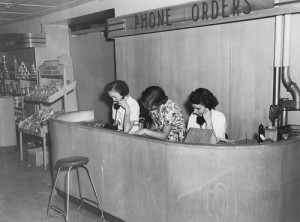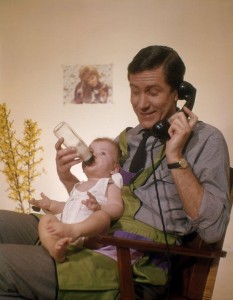For years, HR experts have been calling for mobile friendly recruitment. Applicants need to be able to apply for jobs on their mobiles, or your organisation risks missing out on the best talent – especially when it comes to those technology native Gen Y’s!
Many companies have answered the call of recruiters. Applicants can now upload their resumes in one step, or apply for a job with their LinkedIn account.
Yet the process falls apart when you offer a job to an applicant. The mobile optimised process is broken when applicants need to receive forms in the mail and fill them out by hand.
We’ve experienced the benefits of mobile optimised onboarding ourselves. We were able to hire our marketing coordinator, Harry, by reaching him faster with mobile optimised onboarding than our competitors.
Harry was looking at jobs using the Seek app when he noticed the open position at HROnboard. He was able to upload his resume and cover letter straight from his phone.
But, as is common with most applicants, the role at HROnboard wasn’t the only job Harry applied for. He had a great resume and several interested parties. In fact, Harry had already verbally accepted a position before coming in for his interview at HROnboard. The speed and flexibility of our mobile onboarding platform ensured that Harry had accepted our offer before that initial offer even arrived in the mail.
You need to act fast to hire great people like Harry. Here are 3 more reasons you need mobile onboarding:
1. 76% of the population are on mobile.

Source: State Library of Queensland
A Deloitte report revealed 76% of the population are using smartphones. Three quarters of the country are on smartphones! Mobile use is so ingrained in our culture that many candidates, like Harry, prefer to accept job offers on their mobile device.
Accepting a job offer with paper forms feels like a step backwards; especially after searching and applying online. We live in a world of emails and instant messaging – waiting for forms in the mail feels disjointed and old fashioned.
New employees will be happy if they never have to reach for a pen, or wrestle with a difficult printer again. (Printers are sinister creatures. They like to be difficult because we rarely use them anymore.)
Harry applied for the marketing coordinator job on his mobile, and we called him shortly afterward for an interview.
2. Mobile use is highest amongst younger users.

Source: Nationaal Archief
Young people don’t know how to format a letter anymore. They’ve never had to and the need is almost obsolete.
Receiving a letter in the mail is therefore a novelty for the younger generations, and in their eyes, that’s how it should be. Important tasks are performed on a computer. What’s more important than accepting your job offer?
If you send them a confirmation email about their new job, they would expect it to include a link to accept their offer. Remember, they would most likely have found your job and applied for it on their mobiles already.
Physically waiting for an offer pack feels like wasted time for younger workers. The next generation are used to doing things fast – they want to start straight away.
Harry was waiting for an offer pack when we offered him the job. We may have not been the first to verbally offer him a job, but he received our formal offer first.
Harry liked the professional look and mobile responsive nature of our portal, as it said a lot about our work culture. It was actually a deciding factor when he accepted the offer.
3. Mobile onboarding is as instant as messaging.

Source: Florida Memory
You call a candidate on their mobile to offer them a job. You send them an email, viewable on mobile, to confirm the offer. All of these steps are instant, and employee onboarding should be no exception.
Candidates can receive the job offer via SMS, and accept that offer when it suits them. No need to sit down at a desk with forms. No need to endure the 12 labours of printers and scanners. You don’t even have to sit at a desktop.
When we send out offers using HROnboard, the physical job offer becomes digital (and instant). The candidate then has the flexibility to review and accept the offer wherever and whenever they want to.
Harry enjoyed the flexibility of our job offer. We sent the offer to him on a Friday and he received it immediately. He was able to review and accept our offer over the weekend, while the interview was still fresh in his mind.
Sending anything through the post on a Friday afternoon turns into a waiting game. Harry received our offer as soon as we sent it, and didn’t have to wait until he got home to accept.
If it wasn’t for mobile-optimised employee onboarding, we wouldn’t have Harry as part of our team. Another company missed out on a great employee because we reached him faster and gave him a better employee onboarding experience. Mobile onboarding makes sense in our digital world, and it goes to show paper-based onboarding isn’t just costs in terms of printing and postage.
Book a demo of HROnboard yourself, and see how you can reach your candidates in the way that suits them.
